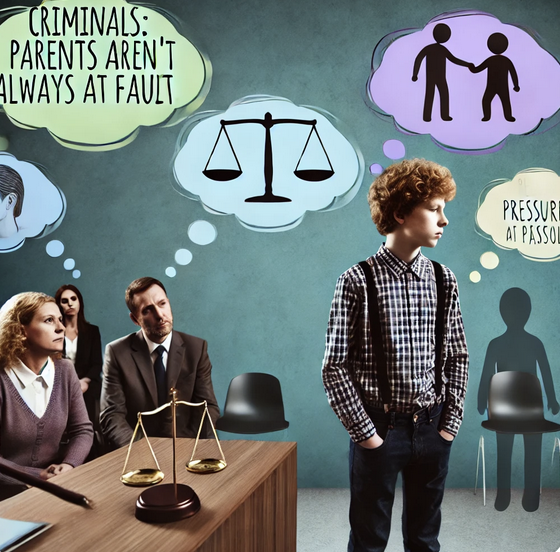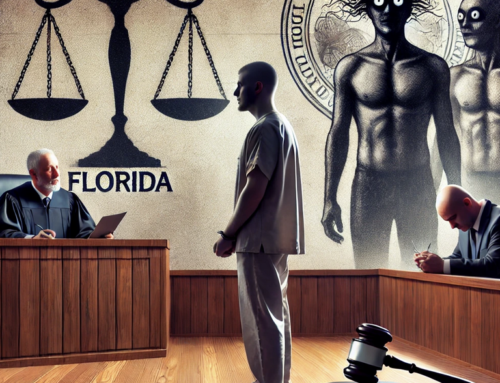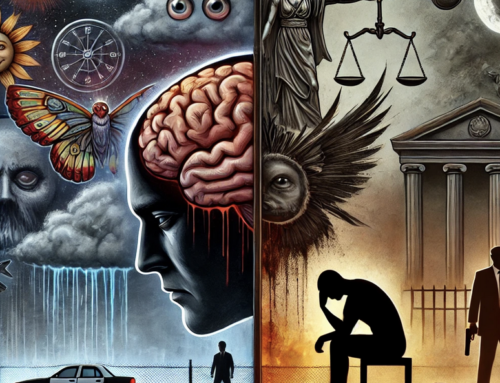Parenting and Criminality
Mental health professionals have been at the forefront of answering the questions that mortify the rest of us. In what environment and under what conditions did a one-time murderer, serial killer or mass shooter grow up? Among a growing number of factors, the parents of criminals receive a great deal of scrutiny. Could they have played a role in shaping up who the criminal becomes in the future? What else plays a role in determining whether juveniles or adults break the law and are charged with crimes?
What We Think versus What Is True
For most of us, the answer to the last question is a resounding yes. The assumption appears to be that good parents turn out good children who become respectable, law-abiding adults and vice versa for bad parents and criminals. The conviction stems from our remedial understanding of human development. The long-held belief is that at birth, children have a clean slate. They are pure, innocent, little cuties like a fertile soil. Therefore, it is the universal duty of parents all over to instill right training, much like a farmer planting and nurturing a seed. According to the much-accepted theory, if done right, the child becomes an emotionally stable, well-adjusted person, akin to a seed blossoming into a full-fledged healthy tree. The issue with this narrative is that it is inaccurate: At least, judging by the findings of several child development studies. Children are like blank checks. Of course, there are blank spaces to fill. However, the checks have the imprint of the bank’s name, logo, and descriptions of spaces. This is similar to a child having his or her own unique temperaments from the get go. They become more likely to pick up certain traits than others. No matter how skeptical you take this analogy, if you are a parent of more than one child, you will recognize the uniqueness of each of your progeny. In fact, the temperament of a child considerably influences how his parents treat him. Thus, the training between parent and child is a two-way street, each modulating the other.
The Conundrum
Going by the understanding of individual uniqueness, it does begin to seem that the “bad seed” theory has relevance. It is arguable and not the topic of discourse. However, research findings increasingly portend that criminality has genetic roots. If this is so, do we absolve parents completely when their children perpetrate abominable acts? No, we do not. This represents the conundrum and technically is one of the dimensions of the nature versus nurture debate. Parents are not perfect. Worse, there are parents who by their actions and behavior do not deserve to raise a kid. Neglectful, abusive, psychologically disturbed, and inconsistent parents often fall under the latter group. Consequently, these parents affect their offspring adversely. This does not establish a rule that children who had bad parenting eventually become criminals. There are plenty of instances where the opposite is true. Similarly, some criminals tend to be “bad apples,” in that they become a stern contrast to their parents. Hard as the parents may try, they may fail and then years later there is an evening news shocker with the criminal from a good home at the eye of the storm. It is plausible to state then that in such scenarios, the parents become the victims, while the child is the victimizer.
Place a Radar on the Criminal
From early on, the child who becomes a criminal exhibits extremely secretive behavior. For a parent to place thorough tabs on him or her, the parent would have to hire a full-time private detective. Gradually, he becomes increasingly apt at keeping a tight lid on aspects of his or her existence. He or she would flip a genuine question from a well-intentioned parent inquiring about his or her whereabouts or activities as an inciting attack that proves the parent does not trust him or her. A textbook instance of such a criminal is Dylan Kiebold, the Columbine mass murderer.
Wrap Up
Apportioning the blame to parents who to the best of their ability devoted a great deal of time and attention to a child who ends up as a criminal is unfair: Especially, and as is usually the case, when the child had siblings who grew up in the same household but who turned out differently. Of course, blaming parents squarely is an easy way to apportion blame to someone and satisfy a rudely simplistic theory. However, this theory conveniently ignores how early in a child’s life he or she begins to make conscious choices; nor how varied the backgrounds of criminals are. Therefore, while it may be an easy to tag criminals as products of bad parents, we should redirect our attention to the criminals and the disturbing choices they make, regardless of the quality of parenting they received.








